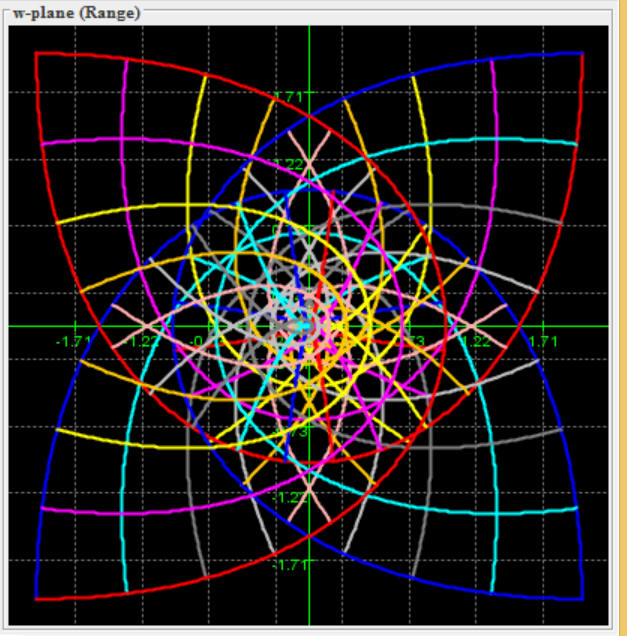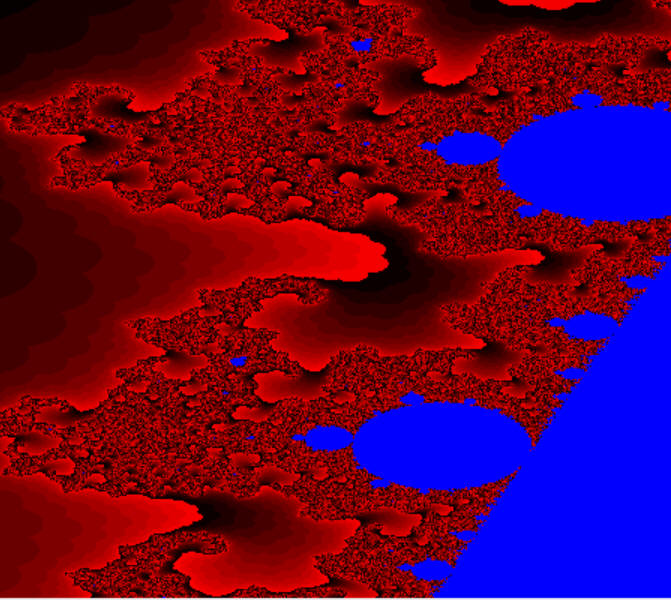Home ->
Teaching -> Math 4512
-> Syllabus
Math 4512 - Complex Analysis Syllabus
 This is an introductory course to Complex Analysis at an undergraduate level. Complex
Analysis, in a nutshell, is the theory of differentiation and integration of functions
with complex-valued arguments z = x +i y , where i = (-1)1/2 .
While the course will try to include rigorous proofs for many - but not all - of the
material covered, emphasize will be placed on applications and examples. Complex Analysis
is a topic that is extremely useful in many applied topics such as numerical analysis,
electrical engineering, physics, chaos theory, and much more, and you will see some of
these applications throughout the course. In addition, complex analysis is a subject that
is, in a sense, very complete. The concept of complex differentiation is much more restrictive
than that of real differentiation and as a result the corresponding theory of complex
differentiable functions is a particularly nice one - as you will hopefully agree at the
end of the course.
This is an introductory course to Complex Analysis at an undergraduate level. Complex
Analysis, in a nutshell, is the theory of differentiation and integration of functions
with complex-valued arguments z = x +i y , where i = (-1)1/2 .
While the course will try to include rigorous proofs for many - but not all - of the
material covered, emphasize will be placed on applications and examples. Complex Analysis
is a topic that is extremely useful in many applied topics such as numerical analysis,
electrical engineering, physics, chaos theory, and much more, and you will see some of
these applications throughout the course. In addition, complex analysis is a subject that
is, in a sense, very complete. The concept of complex differentiation is much more restrictive
than that of real differentiation and as a result the corresponding theory of complex
differentiable functions is a particularly nice one - as you will hopefully agree at the
end of the course.
Text Book and Notes
The text book used for the course is
Complex Variables (Dover Books on Mathematics) by Flanigan, Francis J. The book can be purchased through the bookstore or online
via Amazon. It is ot necessarily my favorite book, but it is very cheap and
considering the price it *is* a good book. Incidentally, you should check other
books from the Dover Books on Mathematics series; they are all cheap
and worth purchasing.
To easily follow the lectures we will use the computer program DyKnow,
available from our homepage. You should bring your laptop charged and ready to
every class.
Office Hours:
My office is in Science Building, room 118 D, and you can reach me by phone at
(973) 761-9000 x5167 or - much preferred - via email at
wachsmut@shu.edu. My office hours
are Mon & Wed from 11 am to 12 pm and by appointment. Since the homework
will sometimes be
challenging, it is important that you make appointments with me as soon as any problems arise.
Grading
There will be homework assigned during each class, which will be due and
collected the next time class meets.
No late homework is accepted, except in special circumstances. There will be two exams during the
semester, and possibly a final exam during the officially scheduled time. In addition, each person
is required to explain a homework problem on the board at least once. While that performance is
not graded, it is required for passing the course. The final grade is computed as follows:
45% homework, 45% exams, 10% participation
Material Covered
T he course will cover material that is considered standard for an undergraduate complex
analysis course:
he course will cover material that is considered standard for an undergraduate complex
analysis course:
- 1. Complex Numbers (Basic Algebraic, Vectors and Moduli,Conjugates,Exponentials,
Products and Powers, Roots, Regions in the Complex Plane)
- 2. Analytic Functions (Limits, Continuity, Derivatives, Cauchy�Riemann Equations,
Analytic Functions, Harmonic Functions)
- 3. Elementary Functions (Exponential, Logarithm, Complex Exponents, Trigs,
Hyperbolic Functions)
- 4. Integrals (Definite Integrals, Contour Integrals, Antiderivatives,
Cauchy�Goursat Theorem, Cauchy Integral Formula, Liouville's Theorem, Fundamental Theorem of Algebra,
Maximum Modulus Principle)
- 5. Series (Sequences, Convergence of Series, Taylor Series, Laurent Series,
Absolute and Uniform Convergence, Power Series techniques)
- 6. Residues and Poles (Residues, Cauchy's Residue Theorem, Residue at Infinity, Zeros
of Analytic Functions)
We might also cover excerpts from "Applications of Residues), "Mapping by
Elementary Functions", or some "Dynamic Systems", depending on how the course
progresses.
 This is an introductory course to Complex Analysis at an undergraduate level. Complex
Analysis, in a nutshell, is the theory of differentiation and integration of functions
with complex-valued arguments z = x +i y , where i = (-1)1/2 .
While the course will try to include rigorous proofs for many - but not all - of the
material covered, emphasize will be placed on applications and examples. Complex Analysis
is a topic that is extremely useful in many applied topics such as numerical analysis,
electrical engineering, physics, chaos theory, and much more, and you will see some of
these applications throughout the course. In addition, complex analysis is a subject that
is, in a sense, very complete. The concept of complex differentiation is much more restrictive
than that of real differentiation and as a result the corresponding theory of complex
differentiable functions is a particularly nice one - as you will hopefully agree at the
end of the course.
This is an introductory course to Complex Analysis at an undergraduate level. Complex
Analysis, in a nutshell, is the theory of differentiation and integration of functions
with complex-valued arguments z = x +i y , where i = (-1)1/2 .
While the course will try to include rigorous proofs for many - but not all - of the
material covered, emphasize will be placed on applications and examples. Complex Analysis
is a topic that is extremely useful in many applied topics such as numerical analysis,
electrical engineering, physics, chaos theory, and much more, and you will see some of
these applications throughout the course. In addition, complex analysis is a subject that
is, in a sense, very complete. The concept of complex differentiation is much more restrictive
than that of real differentiation and as a result the corresponding theory of complex
differentiable functions is a particularly nice one - as you will hopefully agree at the
end of the course.
 he course will cover material that is considered standard for an undergraduate complex
analysis course:
he course will cover material that is considered standard for an undergraduate complex
analysis course: